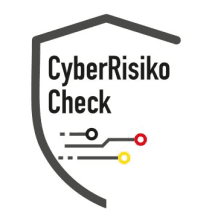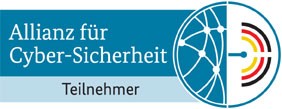DFIR: Digital Forensics and Response in Cybersecurity

Share the blog with others
An Introduction to DFIR
Digital forensics and incident response (DFIR) are critical aspects of cybersecurity that focus on identifying, investigating, and addressing cyber attacks. This article explains the fundamentals of DFIR and how it is applied in practice.
DFIR Components
DFIR comprises two main components:
Digital Forensics: This field of forensics deals with analyzing system data, user activities, and other digital evidence to determine whether an attack is occurring and who might be responsible for it.
Incident Response: This is the process that organizations follow to prepare for, detect, contain, and subsequently recover from a data compromise.
The Importance of DFIR Today
With the increasing proliferation of endpoints and the rising number of cyber attacks, DFIR has become an indispensable part of organizations' security strategy and threat detection. The shift to the cloud and the increase in remote workforces have emphasized the need to protect all devices connected to the network from a wide array of threats.
Although DFIR is typically a reactive security function, modern tools and advanced technologies like artificial intelligence (AI) and machine learning (ML) have enabled some organizations to integrate DFIR activities into proactive security measures. In such cases, DFIR can also be considered part of a broader security strategy.
How is Digital Forensics Used in the Incident Response Plan?
Digital forensics provides the information and evidence that a Computer Emergency Response Team (CERT) or Computer Security Incident Response Team (CSIRT) needs to respond quickly to a security incident. This includes:
File System Forensics: Analyzing file systems on endpoints to find indications of a compromise.
Memory Forensics: Analyzing memory to uncover attack indicators that may not be visible in the file system.
Network Forensics: Monitoring network activities (including email traffic, messaging, and web activities) to identify attacks, determine attackers' techniques, and assess the extent of damage.
Log Analysis: Reviewing and evaluating activity logs to identify suspicious activities or unusual events.
Digital forensics not only assists in responding to attacks but also plays a crucial role throughout the remediation process. It can also serve as evidence in legal matters or audits.
Furthermore, insights from the forensics team can be used to shape and enhance preventive security measures, ultimately reducing risk and shortening response times for future incidents.
The Benefits of an Integrated DFIR Approach
Although digital forensics and incident response serve different functions, they are closely interconnected. An integrated DFIR approach offers organizations numerous benefits, including:
Rapid and accurate incident response.
Establishing a consistent process for investigating and assessing incidents.
Minimizing data loss and reputational damage due to cyber attacks.
Enhancing existing security protocols through more comprehensive insights into current threats and risks.
Faster recovery from security incidents with minimal disruption to business operations.
Assisting in the prosecution of threat actors through evidence and documentation.
SecTepe Digital Forensics and Incident Response (DFIR) Service
Organizations often lack the necessary expertise to develop effective DFIR plans on their own. Even if a dedicated DFIR team is in place, it may be overwhelmed by a variety of false alarms from automated detection systems or be too busy keeping up with the latest threats.
SecTepe, an experienced provider of incident response services, can help organizations bring control and order to chaotic situations.
We develop tailored DFIR plans in close collaboration with our clients, optimizing and standardizing processes while assisting in the development of playbooks for incident response. Our experts also help with testing and simulations to ensure that measures are effective.
DFIR is critical to today’s cybersecurity landscape, and organizations should ensure they are well-prepared to respond to incidents and protect against future threats.
Do you want to strengthen your digital security and better prepare for incidents?
Contact SecTepe today, your trusted partner for Digital Forensics and Incident Response (DFIR) services!








